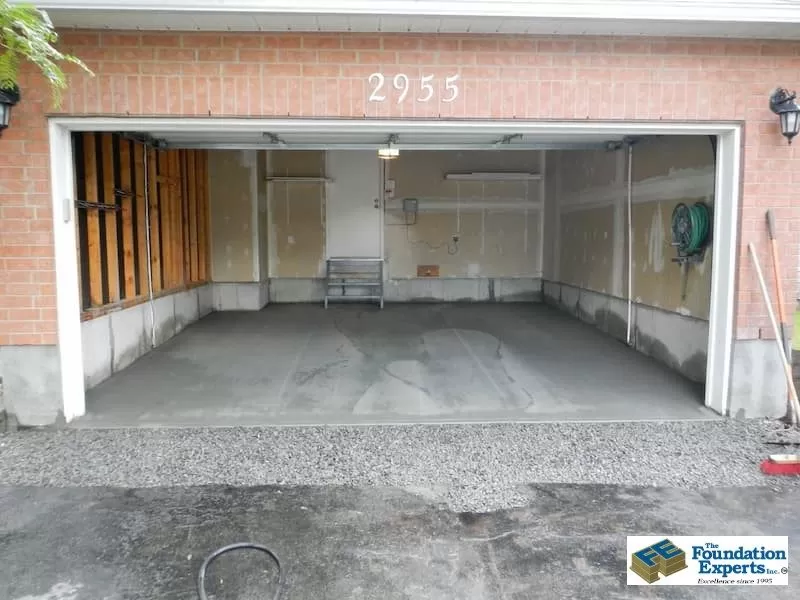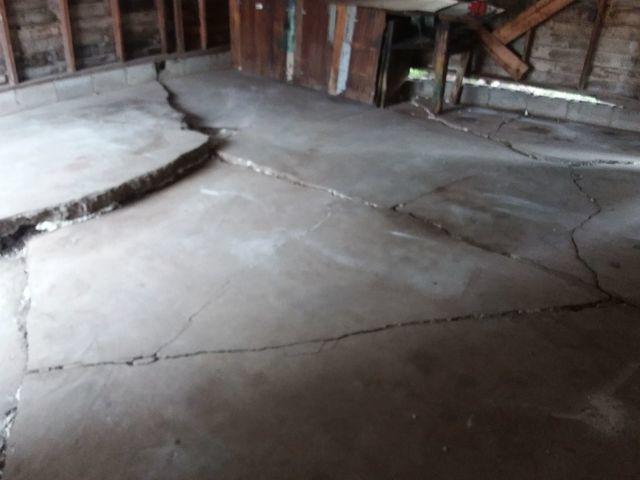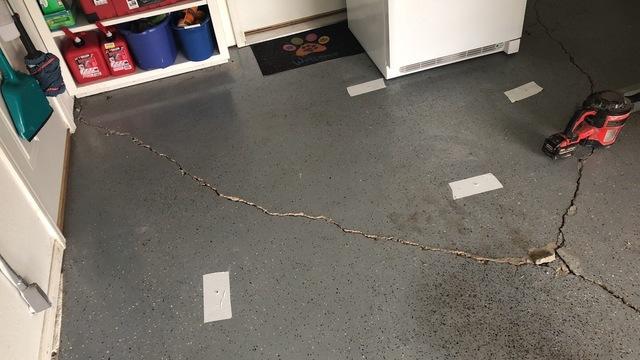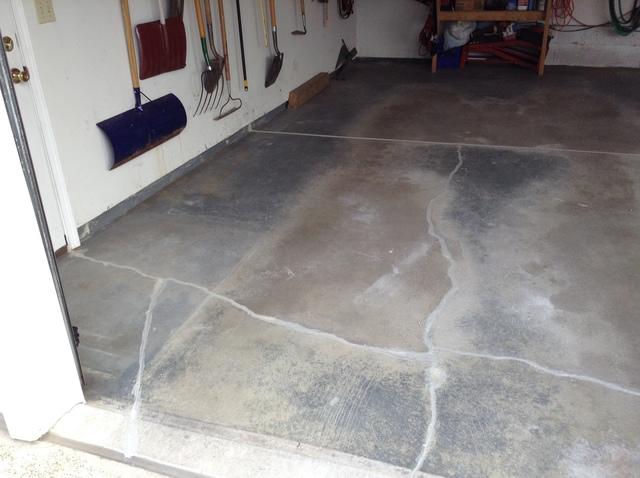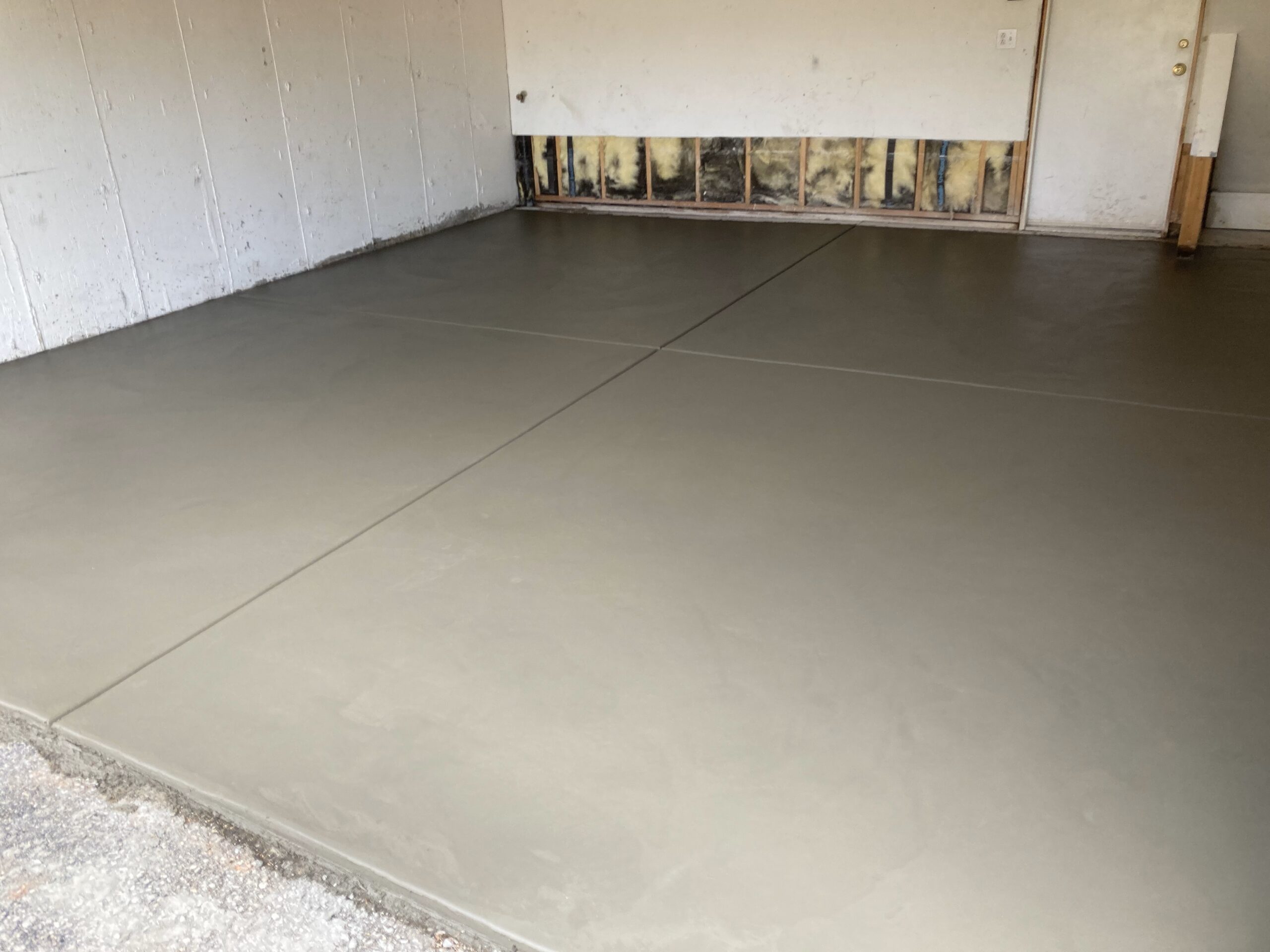Garage Concrete Repair Contractor Los Angeles

by Alonso Romero
CA State Lic. Concrete & Masonry C-8
CA State Lic. General Contruction - B
Buckaroo Banzai the Concrete Nerd
Actual person performing the job
Date: 12/22/2023
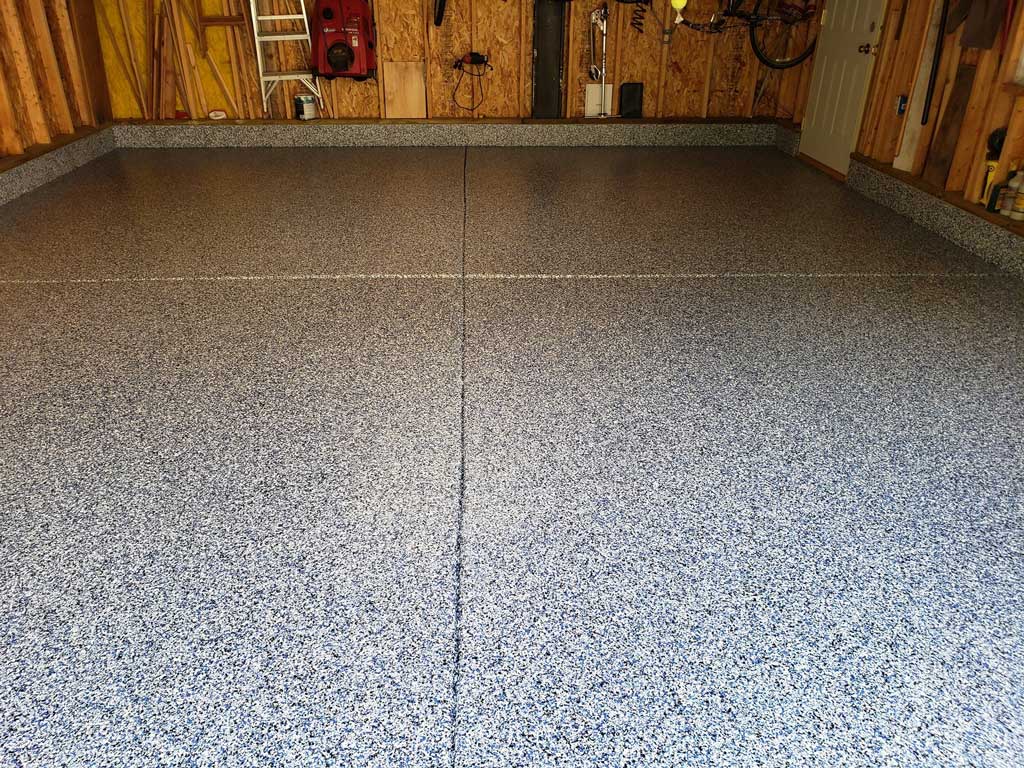
What do you think is the hardest working section of your home? The kitchen? The laundry room? What about the garage?
Think about it. Not only does your garage house all your extra stuff in storage, it may also do double duty as a work space. Not only that, but you park a 4,000-pound vehicle in it every day. And if it’s a two car garage? We’re looking at about 8,000 pounds parked on that concrete each and every day. That’s a lot of stress on that concrete slab holding the whole thing together.
Not only that, but how old is your garage anyway? If your home is over 30 years old, chances are that concrete slab is just as old and it may be time to replace it.
Why is my garage concrete slab damaged in Los Angeles?
Your poor garage slab. You park your cars on it. You may have an extra refrigerator on it. Do you do your laundry in it, too? The point is, your garage slab takes a lot of abuse every day and it’s probably starting to show some wear and tear.
So, what is causing all these problems?
Tree Roots
You probably thought earthquakes were cracking your concrete garage slab. But does that explain why the same thing is happening to your cousin’s garage in Philadelphia? Nope. It’s not earthquakes causing those cracks.
Is your garage near a tree? Believe it or not, tree roots are the number one cause of cracked concrete. The roots of mature trees can measure up to 12 inches in diameter. That’s pretty sizable. And that root is uplifting your concrete every day, causing cracks that – if left unattended – will only get bigger and bigger, undermining the stability of your concrete.
Settling
Did you know that the ancient Romans had this secret recipe for their concrete? Scientists are only now beginning to figure out how Romans created concrete that has lasted for thousands of years.
Sadly, our modern concrete – though it lasts a long time – will never last for thousands of years.
How old is your garage anyway? Most homes in the Los Angeles area were built in the 1920s or 1940s. That’s about 100 years ago. Is your garage just as old? Chances are, the garage slab is probably the last thing the previous owners thought to repair, so your garage slab may be just as old as your house. And it gets all the foot and vehicle traffic?
With all the wear and tear your garage puts up with, it’s no surprise that it’s probably starting to settle. Modern concrete has a lifespan of about 50-100 years. Most homes in Los Angeles were built around 1963, if not earlier. So, I hate to break the bad news to you, but that concrete in your garage is probably nearing the end of its life. Not only that, but the soil underneath shifts slightly every year, creating pockets under the slab, which then causes it to settle a little bit every year. And that settlement builds up over time, creating larger cracks.
Improper Drainage
Water, water everywhere, and where is it all going? In sunny Southern California, we don’t usually think of water as being a major agent for damaging our homes. It absolutely is.
Think about your garage. Is it raised, or is it flush to the ground? In many older homes (think, about 50-100 years old), the garage foundation was set flush to the ground. So, what happens when it rains or the sprinklers go off? Where does that water go? Does it pool around the entrance of the garage?
That water seeps under your foundation, and causes shifts in the soil. If you have an older home, your concrete garage slab was probably poured right on top of soil. Modern code requires that concrete be poured on roadbase (a layer of compacted rock). If your concrete slab was poured on soil, that soil moves around all the time. It moves around even faster when it’s wet. Remember erosion from science class? That’s happening under your garage slab right now. What’s holding your concrete slab in place once the soil is gone? Nothing.
Before repairing your garage slab, you need to ensure that you have proper drainage. You don’t want water rushing underneath your garage. That just spells trouble. A licensed concrete contractor will be able to troubleshoot the source of that water and determine a solution to drain the water away from your garage.
Insufficient Reinforcement
Do you live in an older house? They were built to stand the test of time. But, not always the concrete. Oftentimes, concrete was just poured on soil and that was that. You can imagine with all the settling of soil the amount of cracks that is going to create.
The rule of thumb nowadays (and the construction code, if you want a permit), is to install rebar. You know, those long metal bars installed in concrete fences. What does the rebar do? It provides more stabilization for your concrete. That way, when tree roots grow underneath, the concrete is less likely to pop up. Similarly, the concrete is less likely to settle when water gets underneath.
To Repair or Replace Garage Concrete Floor in Los Angeles?
Ah, the age-old question about concrete. Many products are out there on the market that claim they can fix all the cracks in your concrete. You’ve probably seen a video or two on YouTube that shows how easy it is to fix your concrete.
Unless you’re a professional, concrete isn’t all that easy.
For one thing, all those DIY’ers on YouTube? Their job is to make those videos, so they aren’t your garden-variety DIY’ers. They’ve invested the time and money on specialized tools, materials, etc. to make those videos showing how “easy” it is to replace concrete.
If you want to make sure that you have a garage slab installed that is going to last another 50 to 100 years, you want to hire a licensed concrete contractor. They have all the special tools and materials needed to demolish part or all of your current garage slab and correctly prepare the surface for your new garage slab. A licensed concrete contractor will not only correctly prepare the surface for pouring concrete, but will (crucially) know what type of mix of concrete to use. You want to make sure you use the correct mix to ensure the toughest garage slab possible.
When should I worry about cracks?
First of all, let’s talk about cracks. If the cracks in your concrete are about ¼ inch wide, they’re probably nothing to worry about. Concrete settles over time and that’s going to create small hairline cracks. These can easily be filled in with crack filler from a home improvement store.
When the cracks are wider and deeper, or you have sinking or uplifted concrete – that’s when you have a problem. You may have a structural problem or a drainage problem. In either case, you have to correct the underlying issue before repouring your garage concrete. That’s why it’s crucial to hire a licensed concrete contractor to analyze your concrete slab and determine the root cause of the problem.
How do I replace my garage concrete in Los Angeles?
Oh, those DIY YouTube videos. They make it look easy to fix anything. Bear in mind, those “DIY” folks are most likely professionals. They repair their homes on video as their job. Rest assured, replacing concrete is not a DIY job. Once concrete is poured, there is no going back and fixing mistakes. It’s a one-time deal.
Concrete can be a finicky substance – from proper mix to the correct removal and installation. It’s best to trust your concrete jobs to a licensed concrete contractor. Only a licensed concrete contractor has studied the methodology of replacing and installing concrete. For example, did you know that during heat waves, the soil beneath the concrete needs to be soaked? That way, the soil won’t absorb all the water from the concrete, resulting in brittle and cracking concrete. Your best bet in replacing your garage concrete is to hire a licensed concrete contractor.
Not only that, but the job will get done a lot faster. People are always amazed at just how quickly concrete jobs can be completed, when done by a professional. Replacing your concrete garage slab will probably take about a week or two, when done by a professional.
So give us a call today. Our licensed concrete contractor has the experience and know-how to replace your concrete garage slab quickly and within budget.
